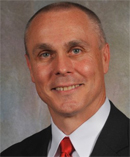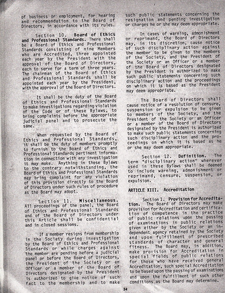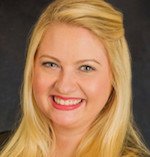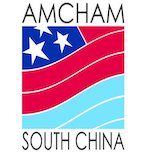IABC and PRSA, again proving you can’t teach an old dog new tricks, are opting for high-priced association execs to "lead" them instead of hands-on PR pros who can handle facts surfaced by traditional and blogger press.
 |
Carlos Fulcher, deputy executive director, Drug Information Assn., Horsham, Pa., until November, 2013 (no reason given for leaving that post), has joined the International Association of Business Communicators as executive director. His 2012 pay package was $283,749.
The PR Society of America is seeking a CEO who “preferably” has an MBA, is a Certified Assn. Executive, and is APR. It is going down the association road after seven years of being headed by CAE Bill Murray, who was unable to increase revenues during his term in office. His pay package in 2012 was $423,000 and included a $61,000 bonus that was not revealed to the 2013 Assembly. He resigned March 7 effective June 1.
Staff heads of legal and medical professional groups, as well as those of the American Society of CPAs and other groups, are always professionals of the respective groups. IABC and PRSA have been invaded by association pros who are expert at politics and avoiding press. The last time PRSA board members faced the press in a press conference was in 1993 at the annual conference in Orlando.
IABC leaders and staff have never had a press conference to our knowledge. The association culture leans heavily on lawyers for advice, sometimes choosing what is technically legal (such as withholding IRS Form 990 until the last few days) rather than doing what is ethical (providing financials soon after the close of the year). The association-dominated staff tends to overpay themselves. Pay/fringe and retirement benefits of PRSA staffers in 2013 totaled nearly $6 million or about 55% of the $10.9M in expenses
Fulcher, who is at the annual IABC conference that opened yesterday in Toronto, is a career association executive who has the CAE credential of the American Society of Assn. Executives. He has a BS in industrial technology from Northern Illinois University (1990) and an MBA from Rockford University, Rockford, Ill., (1996). Student body at Rockford is 1,250.
IABC Has Financial, Web Problems
IABC, very late as usual in releasing its audit, reported last week that 2013 revenues declined 10.8% to $5,666,483 and that net assets had plummeted 43.7% to $680,013.
Cash and cash equivalents declined $495,117 to $42,172. Investments fell to $2,045,162 from $2,627,995.
A “contract dispute” has developed with an unnamed firm doing web construction. It may be Extractable, S.F., which was named at the end of 2012 to do a complete revision of the group’s website. Because of this, $552,067 is listed as “intangible assets-net” vs. the previous figure of $88,125. The intangible assets include $386,400 in web development that is “currently on hold due to a contract dispute” and $211,250 for software.
IABC has a history of withholding key information from members. The 2003 audit mentioned a “lawsuit” but gave no further information. A search of the California courts by this website turned up a defamation lawsuit by Elizabeth Allan, president and CEO from 1995-2001.
She named IABC, former president Lou Williams and promised to name 20 others as part of the suit, which limited damages to $1million. Williams had told an IABC meeting that the TalkingBusinessNow website on which $1 million had been lost was a “foolish” venture and a “pipedream” that happened on Allan’s watch.
IABC’s response to the Allan suit was that Allan’s own conduct was the “sole and proximate cause” of the financial problems that beset the group. The suit was settled with minimal payment to Allan.
The 2013 IABC audit revealed that $91,350 was paid to an unidentified previous board member to provide interim staffing on internal and external communications.
Dave Murray, who reports on IABC via writingboots.typepad.com, complained at the AGM last year that staff and leaders "have no time for interviews, nobody ever gets back to me, nobody ever wants to talk on the phone." Robin McCasland, 2013 chair, likened Murray to "dogs humping in the park...don't be that dog," she told the AGM.
Fulcher succeeds Christopher Sorek who had resigned last June after about a year in the job.
Publication to Digital; ABC Program Suspended
 |
Other issues facing IABC as members gather for its annual conference are the suspension of its Accredited Business Communicator program in favor of a new designation to be developed following principles of the Int’l Standards Organization and the switch of its magazine Communication World to online-only in 2013.
The Annual General Meeting of the group is set for Tuesday, June 10 from 4:30-6 p.m. in the Birchwood room of the Sheraton Centre Toronto Hotel. It will be conducted by McCasland, whose entry on the IABC website does not list an employer. Her LinkedIn entry says, “Employer Dallas area.” Previously she had listed her job as “employment engagement/internal communication lead for the Services division of Dell.”
Russell Grossman, director of communications, Dept. for Business, Innovation and Skills, U.K. Government Administration, London, is succeeding McCasland as chair.
McDonald’s Exec Speaks
Among speakers at IABC is John Betts, CEO of McDonald’s Canada. He will discuss “The power of connecting: McDonald’s Canada business transformation.”
Other topics to be covered include “Turn your CEO into a communications star”; “the surging role of images in communication”; “How to self-inspire when the muse is missing”; “testing your social media issues management strategy without a single Tweet”; “A human touch: How simplified, conversational language improves the brand experience”; “Empower your employees to effectively and responsibly engage in social media”; “The new reality of career transitions,” and “The science of employee engagement.”
PRSA Heads Down Assn. Road
The search committee that is looking for the new CEO of PRSA is proof that the tiny clique of arch-conservative APRs that has ruled the Society since the 1970s shows no signs of giving up any power.
All seven members of the committee are APR and three are Fellows. Only one should be to reflect the fact that only 18% of members are APR. No chapter presidents are on the committee, another sign that the chapters have taken a dive. Committee members are 2013 chair Mickey Nall; chair-elect Kathy Barbour; treasurer Mark McClennan; Secretary Blake Lewis, and national directors Marisa Vallbona, Susan Walton and Felicia Blow. None are from New York.
After seven years with a male COO/CEO, odds are that a woman will be the choice. Eleven of the 12 non-officer board seats are held by women.
The 110 chapter presidents, if they acted in unison, could control the Assembly and erase the association mentality that has choked the Society since 1980. Instead, they have sold out for an expense-paid “Leadership Rally” June 13-14 in New York (as always) that should be a real Assembly with powers over the board.
The “Rally” replaced the spring Assembly that had been held until 1987 and which was paid for by the delegates themselves. National now picks up almost all of the tab, each of the 134 attendees (110 chapter presidents, 14 section chairs, ten district chairs) getting $550 toward expenses plus five free meals including a dinner at a Class A restaurant Friday, June 13. Cost of the Rally approaches $150,000.
Assn. Types Ripped Authors for 18 Years
Patrick Jackson, 1980 president, instituted a policy of having a staff of “association professionals.” About ten PR careerists were dispensed with and association pro Betsy Kovacs was installed as COO that year. She had one senior PR person on staff for the next 14 years—Donna Peltier.
The Society embarked on a massive illegal copying scheme that sold hundreds of thousands of copies of authors’ articles without their permission until it was exposed in 1994. The previous PR-dominated staff would not have allowed that.
They would not have allowed the tossing of hundreds of Silver Anvil entries throughout the 1980s for technical miscues such as having a binder that was more than three-inches thick. Binders sold as “three inches” actually measured 3.25 inches on the outside which is the way the association-dominated staff measured them. Filing fees were kept and entries were returned without comment. Outraged members led by Lou Capozzi ended such unfair practices.
Kovacs was succeeded in 1994 by another association professional—Ray Gaulke. He instituted a “get tough” with the press policy, barring reporters from sitting among Assembly delegates although they had done that for decades.
The policy of having only one or two senior career PR people on a staff of more than 50 continued through the 1990s and up to the present.
Catherine Bolton, hired in 1999 to be the Society’s first “chief PR officer,” was drafted to be staff head in 2001 after the sudden resignation of Gaulke after serving one year of a five-year contract. Bolton was succeeded in January 2007 by Murray.
Members Lose Info, Power
Members in 2006 lost the 1,000-page directory of members, considered by many as the single most valuable service. A PDF putting printing costs in the hands of members who want such a resource is possible but leaders refuse to discuss it. No vote was taken in the Assembly on switching to online-only membership lists.
Members since 2006 have not had access to the national list of Assembly delegates; they lost the transcript and audio record of the Assembly that had been provided until 2005; they lost the list of 50+ staffers that had been available until 2009 (replaced by eight staff names), and lost the single list of 110 chapter presidents that had been provided until 2009 (forcing presidents to compile their own lists by visiting 109 other chapter websites).
They have also lost the power to gain a hearing when accused of violating Society rules. Up until 1999, the Society had Judicial Panels that heard accusations against members. A further hearing was provided by the board.
No member could be denied any privileges without facing his or her accusers. Description of the rights of members to hearings took up two pages in the members’ directory. The Society in recent months has cancelled the web privileges of at least two members without providing them a hearing before the board or anyone else.



 Sherrie Mazur will join the Arthur M. Blank Family Foundation as managing director, of communications on Feb. 14.
Sherrie Mazur will join the Arthur M. Blank Family Foundation as managing director, of communications on Feb. 14.  Independent Diplomat, the nonprofit that promotes democracy by organizing opposition movements and activists, has trained its sights on Venezuela.
Independent Diplomat, the nonprofit that promotes democracy by organizing opposition movements and activists, has trained its sights on Venezuela. Robert Tappan has joined the International BioMetrics + Identity Assoc., the trade group for the identity technology industry.
Robert Tappan has joined the International BioMetrics + Identity Assoc., the trade group for the identity technology industry. Tiffany Haverly, who was at Finsbury Glover Hering, has joined the Internet Association as director of communications.
Tiffany Haverly, who was at Finsbury Glover Hering, has joined the Internet Association as director of communications. BGR Government Affairs represents the American Chamber of Commerce in South China as economic and political tensions between the two countries escalate.
BGR Government Affairs represents the American Chamber of Commerce in South China as economic and political tensions between the two countries escalate.


 Have a comment? Send it to
Have a comment? Send it to 
No comments have been submitted for this story yet.